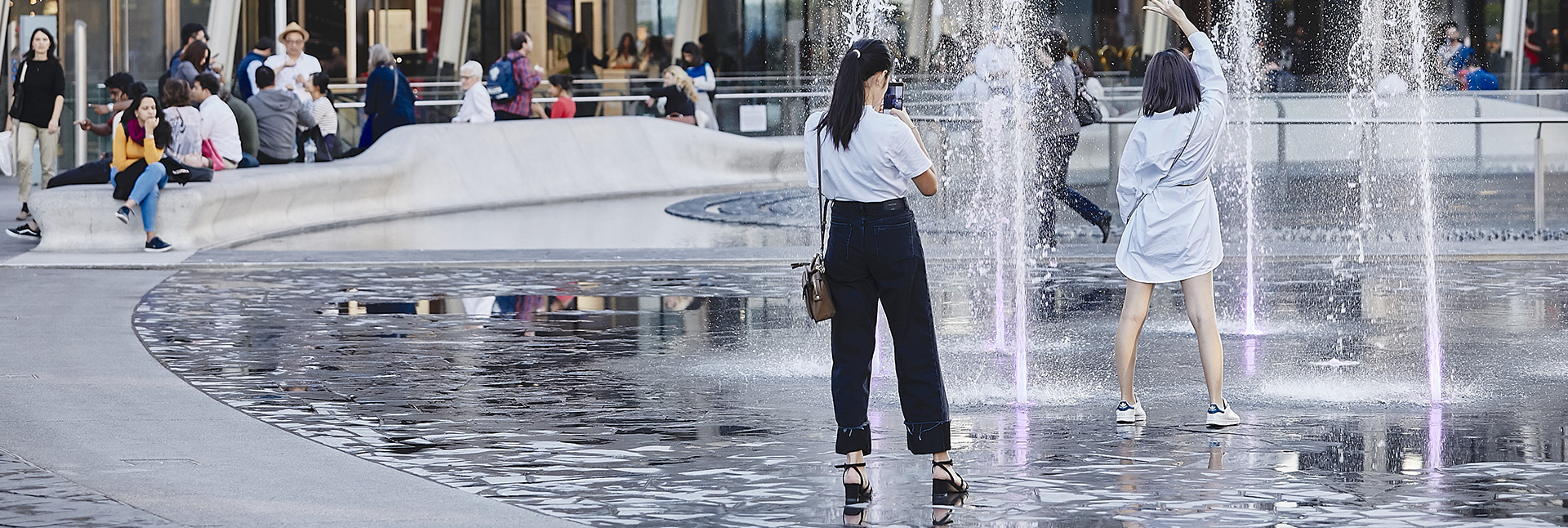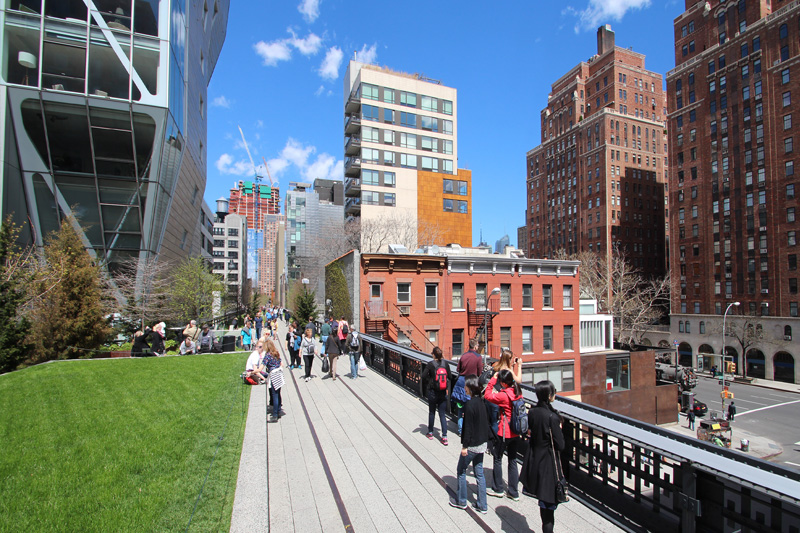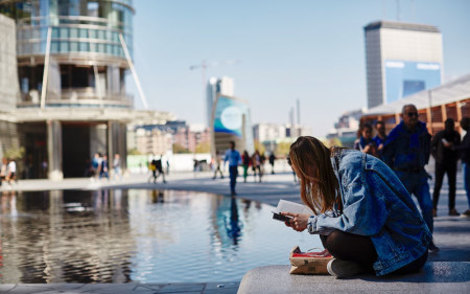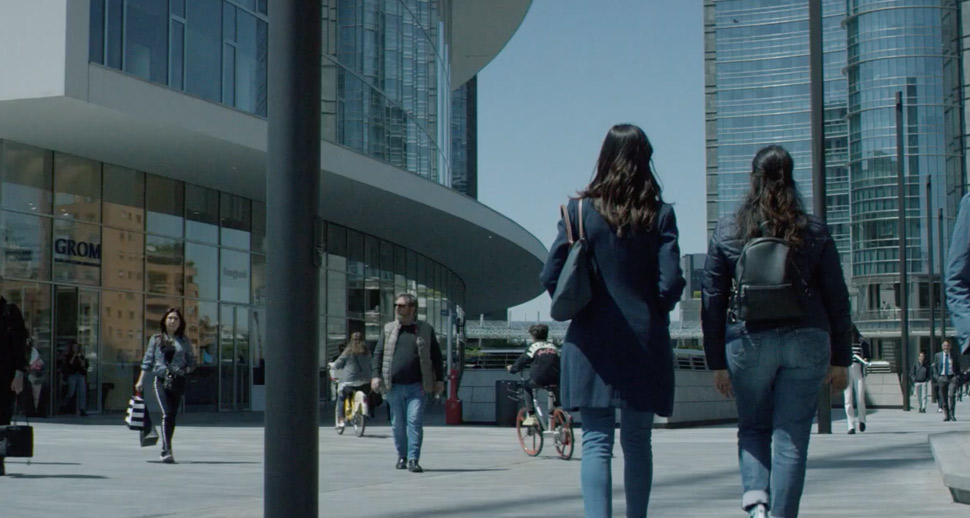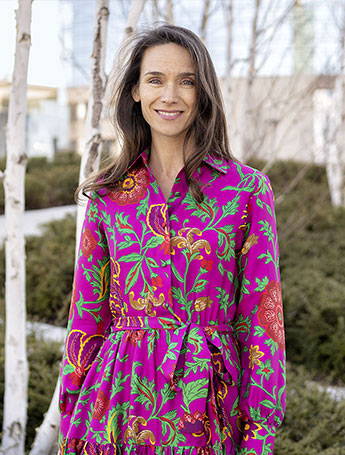
The real estate industry is in the process of a profound transformation towards a new model of sustainable development, now synonymous with «circular economy». We talk about this with Kelly Russell Catella, in charge of Sustainability for COIMA for more than 15 years.
Traditionally one of the sectors most strongly associated with consumption - of land, materials, energy - and with solid waste production, real estate is undergoing a radical change. One of the factors behind this transformation is the acceptance that sustainability must be a key consideration for every business. “Up until a few years ago, the scale of 'consumption' by the real estate business” says Kelly Russell, Managing Director, Marketing, CSR & Investor Relations in COIMA SGR and Chairman of COIMA’s Sustainable Innovation Committee, “was not seen as a problem by many operators, thus its serious consequences were not a concern. However, a new conception of the industry has been gaining ground over the last 10 years, aimed at rediscovering the importance of public spaces and of people within the built environment, and reducing the consumption of natural resources and at being able to use new sources of clean energy.”
COIMA has been one of the pioneers in incorporating this approach into its business: “Today the issue of sustainability is becoming increasingly important in the real estate development business. However, this is understood mostly in environmental terms. We have complemented this undeniably crucial aspect with a more holistic approach. We interpret sustainability by emphasizing the centrality of people, thus social aspects, and governance, cultivating a one of a kind model of value creation. This is why we've managed to stand out in Italy by developing our projects around a virtuous idea of local development, for the benefit of all the stakeholders involved. We believe that only in this way is it possible to help fight climate change and foster the promotion of diversity and social integration, by encouraging other players, in every sector, to adopt a way of doing business that values responsibility above all else.”
Taking a holistic approach, COIMA has put 8 concepts at the heart of its business, inspired by the United Nations sustainable development goals. “COIMA Roots is the fundamental driver of our business processes to make our commitment a long-term reality,” explains Kelly Russell. “To this end, we've implemented the basic principles of sustainability in the investment, development and management decision-making process. These 8 values have thus become an integral part of our strategy, allowing us to promote innovation in industrial processes by giving more attention to people and natural resources across four dimensions: sustainability, social relations, economy and performance. As the name itself indicates, we start by returning to our roots, with nature and the human being at the centre of every project. The concept of well-being highlights the relationship between happiness and beauty, with particular reference to the built and natural environment surrounding us. To guarantee this result, we deploy knowledge and services for users of the space, as the primary targets of our action in the territory, by making technology and innovation the core focus of our work. Finally, the concept of responsibility takes us back to the ethical values of transparency in the communication of governance with the human values of social inclusion. All these coexisting and essential elements have provided us with great satisfaction over the years,” Kelly Russell points out.
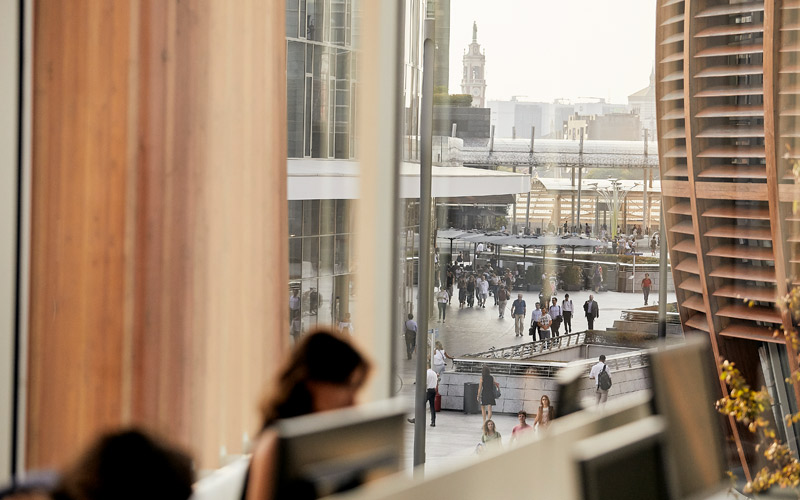
Inspired by these principles of sustainable development, COIMA has set up COIMA City Lab, a think tank with the mission of delineating guidelines for the creation of urban spaces of the future, serving not only projects promoted by COIMA, but also as a cultural contribution toward the development of the national territory as a fundamental resource for Italy itself. COIMA City Lab is composed of internationally experienced architects and professionals with specific skills and expertise in urban planning. The think tank's first output has been the «Undertaking for great cities», a Charter setting out guidelines for the responsible development of future urban projects.
The Charter, addressed to architects, developers and institutions, identifies measurable quantitative and qualitative standards for the development of sustainable urban regeneration projects, and provides a score card to verify and track compliance with these objectives. Thus, for example, in order to promote a green culture and a circular economy, heat islands must be reduced, air quality must be improved and energy must come from renewable sources; new projects will need to have certifications that guarantee these characteristics.
These principles are applied to all development or urban regeneration projects using an analytical approach: “We always start with due diligence to understand how to fit our projects into existing urban contexts. There are two key concepts: on the one hand, promotion of links between new developments and the history of a city so as to foster and strengthen social flows and dynamics; on the other hand, the certification of all our new real estate projects according to the latest building standards, like the WELL building standard, focused on the health and mental well-being of those who occupy a given built environment, which we were the first to adopt in Italy.”
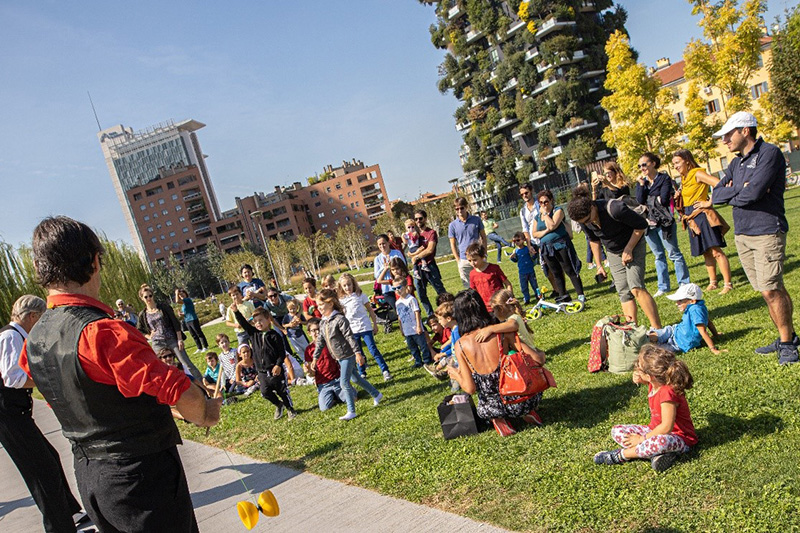
There is one concept that seems to epitomize how these values can combine: that of circular economy, central to obtaining a certificate like «Cradle to Cradle» in recognition of sustainable conduct. “It involves an approach to system design that adapts industry models to nature, returning, as stated earlier, to our roots: converting production processes by treating the materials used like natural ones, which are given the opportunity to be regenerated into other products so as not to create waste.”
Today we are seeing significant movements of people into urban centres, which will intensify over the next thirty years. This transformation will have a huge impact on how cities are experienced and is beginning to be taken into account by many leading building and urban projects, like those being carried out by COIMA in Milan.
Perfect examples are the masterplans of two important areas both in terms of size and location: the extension of Porta Nuova to the North, towards the Milano Centrale railway station, and the Valtellina site including the disused Farini railway yard. Both these projects have been developed, from the outset, on the basis of COIMA's vision of holistically incorporated sustainability.
“Real estate is changing,” concludes Kelly Russell, “along with cities and the way we live in them, and we're proud to be able to play a part in a sustainable transformation that can contribute to the challenges ahead for us all.”

